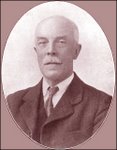In Alex Ferguson's recent interview in Macau with the assembled press, one passage struck me in particular. Asked how Arsenal would cope without Henry, he said,
"They lost him in December. I don't think they'll suffer too much. His time had gone and I think Arsene knew that."
One of the perverse attractions of sport, and of sporting heroes, is the brevity of that "time", the "pity that youth does not last".
They talk about the brevity of a sporting career (usually it seems these days as some facile justification for relatively mediocre talents being paid more in a year than, say, a nurse in a lifetime), but that window of "time" may be just a fragment of a career. In some cases, it seems it may be little more than one afternoon, to be in the right place at the right time. So much of it is luck.
You are never quite sure when a player's time has gone, when even the finest of players is no longer tuned to a team's subtle dynamic, or has started down the far side of his career.
I think Eric sensed it himself, but there are not that many who do "go out at the top", and indeed, there never have been. But in earlier days, a footballer had little choice but to ply his trade as long and wherever he could, because he had rarely been able to put that much money by. The pub and the Soreen factory lay in wait. Nowadays, a player with even a few seasons at the top should be comfortably insulated against a poverty-stricken old age.
Some players, obviously, just want to keep playing as long as they conceivably can, invent new and different roles and careers for themselves, which do not detract from what went before. Paul McGrath at Aston Villa; Dwight Yorke, for example, with his holiday in Australia, his World Cup and now his time at Sunderland; Sheringham, at West Ham and wherever he's now off to; Irwin and Ince at Wolves. Presumably, they are not driven entirely by money, unless they have gambled it all away, as much as by fear of what life may hold for them when they have to stop. They must all have heard those old players saying that nothing else is ever as good.
"Probably this is my fourth team — you could even say it's my fifth — but it's certainly my fourth, so there are moments when you have to make decisions regarding players' futures, which isn't easy because you get attached to them. You can't keep them forever and give them a pension. There comes a point where they have to move on. We did that and it was hard. But it was for the right reasons. We had to evolve and I knew that."
And I think supporters become even more attached to players. For myself, I think I retain a soft spot for anyone who has ever played for United, which is probably becoming obvious. Even Prunier and Taibi had their solitary moment in the sun and were endearing in the monstrosity of it all. If I had my way, we'd probably never get rid of anyone (well, Kieran going was probably the right move for all concerned, and the same will go for Smudger when he finally goes). And whatever SAF says, I think Ole's last contract was partly a pension, and the knowledge that keeping him at the club kept the memory of 1999 fresher, and that he could do good work behind the scenes.
Subscribe to:
Post Comments (Atom)


No comments:
Post a Comment